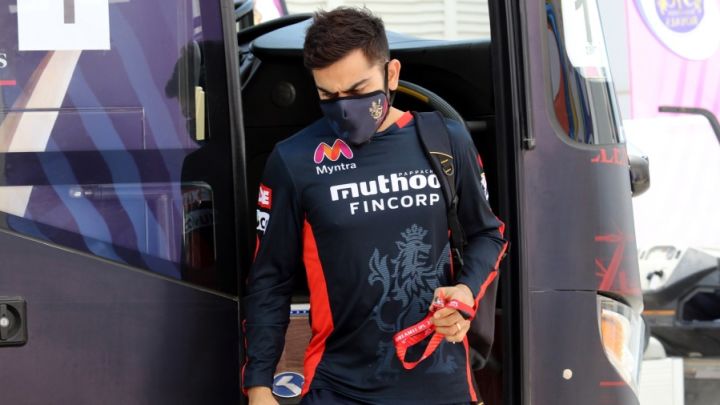IPL insists on seven-day isolation period for Covid-19 cases
The broader sporting world has allowed athletes to gamble with the virus, but the league is adopting stricter protocols
Nagraj Gollapudi

Even as sporting authorities around the world are allowing athletes to compete in events despite testing positive for Covid-19 over the past year, the IPL has decided to stick to its 2022 policy of asking players with the virus to undergo a week-long isolation period before returning back to their teams.
While the season no longer has to be run from within a biosecure bubble that has been mandatory in the three years since the pandemic, the IPL has said it wants to be “cautious” and players who test positive will not be allowed to participate in a game or in training until they return consecutive negative tests on days five and six of recovery.
“Although the number of Covid-19 cases in India has been declining, we still need to be alert to the emerging strains that are becoming a problem on a regular basis,” read the IPL’s medical guidelines, presented this week to franchise companies were distributed. say. “Positive cases must be isolated for a maximum of seven days. Positive cases are not allowed to participate in any game or any form of activity/event during the isolation period.
“From the fifth day, they can undergo RT-PCR provided they have been asymptomatic for 24 hours without any medication. Once the first result is negative, the 2nd test must be performed 24 hours apart. Only upon receipt of two negative RT-PCR tests 24 hours apart, i.e. day five and day six, they can rejoin the group.
The IPL pointed out that testing will only be given to those who actually show signs of Covid-19, not those who are asymptomatic. Any participant who continues to test positive after day seven would have to submit two negative tests 12 hours apart before rejoining the group.
This is in contrast to the easing of restrictions on handling Covid-19 cases in global sport, including international cricket. Last August, Australian all-rounder Tahlia McGrath became the first cricketer to play a match despite testing positive for Covid-19 in the T20 final of the Commonwealth Games against India.
A few months later at the men’s T20 World Cup, Mathew Wade, who had tested positive, was called up to be part of the Australia team in the league game against England, who eventually went out washed out. In January, Australia opener Matt Renshwaw reported Covid-19 symptoms on the first morning of the New Year’s test against South Africa in Sydney, tested positive before the toss but continued to play.
The ICC has allowed players to take part in games at global events including the CWG in England and the T20 World Cup in Australia last year. However, it remains to be seen whether the same process will be maintained during the ODI World Championship in India later this year.
Nagraj Gollapudi is a news editor at ESPNcricinfo